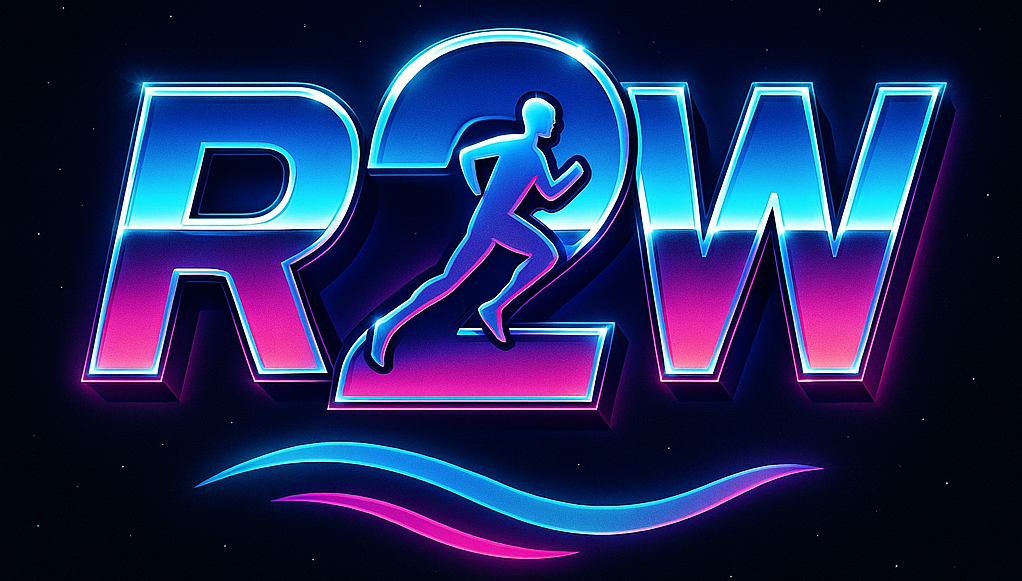 Eating smart in later years can boost energy, support brain health, and help maintain physical strength. At 58, I’ve learned that a balanced diet—with carefully chosen foods and targeted supplements—adds quality and energy to each day. For example, dates have become my favorite fruit because they are naturally sweet without spiking sugar levels, and I now opt for sweet potatoes over rice for a nutrient-packed carbohydrate boost.
Eating smart in later years can boost energy, support brain health, and help maintain physical strength. At 58, I’ve learned that a balanced diet—with carefully chosen foods and targeted supplements—adds quality and energy to each day. For example, dates have become my favorite fruit because they are naturally sweet without spiking sugar levels, and I now opt for sweet potatoes over rice for a nutrient-packed carbohydrate boost.
Senior nutrition is not about fad diets or simply eating less. It means understanding that as we age, our nutritional needs change. This guide offers insights on senior nutrition, the must-have nutrients, helpful supplements, and common pitfalls to avoid. The aim is to help you eat smarter and age stronger.
Understanding the Nutritional Landscape for Seniors
As we grow older, our metabolism slows down and our nutritional requirements shift. Our bodies may absorb vitamins and minerals less efficiently, so every meal should count. This section explains why thoughtful nutrition is very important for maintaining muscle, energy, and overall well-being. Even subtle changes in how our body uses food can lead to significant differences in energy and quality of life.
Since our bodies no longer process nutrients as robustly, it becomes imperative to focus on quality rather than quantity. In some cases, supplements may be necessary to cover any nutritional gaps, but they should always support a diet rich in natural, whole foods.
Key Nutritional Considerations for Seniors
Seniors need to pay attention to a few high-priority nutritional factors. Below is a list of essential nutrients and factors that can lay the foundation for a healthy diet:
- Protein: Keeping muscle mass strong is very important. Steady protein intake through the day can help counteract age-related muscle loss and support recovery after light exercise.
- Vitamin B12: Absorption of B12 can decline over time. Fortified foods or supplements help support nerve function and the formation of red blood cells.
- Vitamin D: Vital for bone health and muscle strength, vitamin D may need to come from dietary sources or supplements, especially when sunlight exposure is limited.
- Calcium: Critical for sustaining strong bones, particularly in postmenopausal women, calcium intake can reduce the risk of fractures.
- Fiber: A high-fiber diet supports good digestion and helps manage cholesterol and blood sugar levels.
- Omega-3 Fatty Acids: These healthy fats benefit the heart, support brain function, and may help reduce inflammation.
- Lower Calorie Needs: With a slower metabolism, choosing nutrient-dense foods is essential for optimal health.
- Hydration: Aging can dull our sense of thirst, so making a deliberate effort to drink sufficient water is key to prevent dehydration.
- Medication Interactions: Many seniors take multiple medications. Certain foods, like grapefruit, might interact with these drugs, so it is important to check in with a healthcare provider about food choices.
- Changes in Taste and Smell: A diminished sense of taste may lead to reduced appetite. Experimenting with herbs and spices instead of excess salt can give a boost to flavor while keeping meals heart-healthy.
By focusing on these factors, each meal can fuel both body and mind, contributing to long-term wellness.
Beneficial Supplements for Seniors
Even the best diet might miss a few nutrients, and that’s where supplements can help. While food remains the primary source of nutrients, supplements keep your diet balanced. Here is an overview of popular supplement categories that many seniors find useful:
Cognitive Benefits
- Omega-3 Fatty Acids (DHA and EPA): These fats, commonly found in fatty fish, help maintain cognitive function. Supplements are a convenient backup on days when fish isn’t part of your meal plan.
- B Vitamins (B6, B12, Folate): Vital for brain health, these vitamins become even more essential as absorption slows with age.
- Magnesium: Recent studies suggest that magnesium supports brain function and proper nerve activity.
Energy Boosters
- Vitamin B12: Beyond nerve health, B12 is crucial for energy production, helping you stay active throughout the day.
- Iron: Iron is important for overall vitality, but excess can be risky. Always consult a doctor before beginning supplements.
- Vitamin D: In addition to its role in bone health, vitamin D supplementation can counter fatigue, especially during darker months.
- CoQ10: This supplement may help with cellular energy production, which becomes particularly beneficial as our energy needs shift with age.
Exercise and Recovery
- Creatine: While well-known among younger athletes, creatine supports muscle strength and can be beneficial for seniors engaged in regular exercise.
- Protein Powders: These supplements provide a simple way to hit daily protein goals, aiding recovery after physical activity.
- Magnesium: In addition to its cognitive benefits, magnesium helps muscles relax and recover after a workout.
Taking supplements wisely and after checking in with your healthcare provider can be a great way to plug any nutritional gaps without compromising a balanced diet.
Foods to Approach with Caution
Not every food fits well into a health-focused diet for seniors. Instead of eliminating your favorite treats entirely, it’s best to opt for alternatives that better serve your changing nutritional needs. Consider moderating or replacing the following foods:
- High Sodium Foods: Processed or canned items can be loaded with salt, raising the risk of high blood pressure.
- Fried Foods: These are typically high in unhealthy fats, which may contribute to heart issues over time.
- Empty Calories: Sugary drinks, refined carbohydrates, and processed snacks can lead to short spikes in blood sugar without offering lasting nourishment.
- Artificial Sweeteners: Some research links these additives to potential negative health effects, so turning to natural sweeteners is often a better choice.
- Raw or Undercooked Foods: With a slightly increased risk for foodborne illnesses, it’s safer to avoid items like raw eggs or unpasteurized dairy products.
- Grapefruit and Juice: As grapefruit can interfere with certain medications, it’s wise to limit its consumption if you are on prescription drugs.
- Excessive Caffeine: Too much caffeine might lead to anxiety or disrupt sleep, along with potential heart rhythm issues.
- Excessive Alcohol: Overconsumption can worsen health problems and interact with medications.
- Processed Meats: Usually high in sodium and unhealthy fats, these are best enjoyed only occasionally.
Focusing on nutrient-dense foods—such as fresh produce, lean proteins, whole grains, and healthy fats—over empty calories can help ensure every meal contributes positively to your overall health.
Fundamental Switch Up in Dietary Approach
Changing your approach to eating can feel refreshing. Rather than obsessing over strict diets, it pays to choose nutrient-rich foods that support your body over the long term. For seniors, it isn’t solely about cutting out certain foods; it’s about making simple, thoughtful replacements that cater to your evolving needs.
This means including more whole foods like fresh fruits, vegetables, nuts, and whole grains, while being mindful of portion sizes. Since turning 58, I have focused on foods that provide lasting energy and ensure easy digestion. Dates are a naturally sweet treat that satisfies cravings without causing sugar spikes, and sweet potatoes offer a robust nutritional profile that outperforms rice in many cases.
Supplements, too, should serve as a backup rather than a replacement for a quality diet. Getting involved with a healthcare provider or registered dietitian can help you fine-tune your dietary choices to match your personal health needs. With deliberate planning and small daily changes, you can enjoy your meals while still giving your body what it needs to stay strong and vibrant.
Common Questions & Troubleshooting
Even if you’ve been committed to healthier eating, it’s normal to have questions or encounter setbacks. Many seniors wonder how best to integrate new dietary habits or adjust to changes in energy levels. Here are some common queries along with simple advice:
Age is Just a Number: Ernie Hudson’s 5 Key Foods for Longevity and Energy
What if I’m not sure which supplements to take?
The best starting point is to have a conversation with your doctor or a registered dietitian. They can help identify any nutritional gaps through tests and recommend the correct supplements in amounts that suit your needs.
How can I safely add more protein to my diet?
Finding protein-rich foods you enjoy is key. Lean meats, dairy, legumes, and plant-based sources offer excellent options. If dietary sources fall short, a protein powder or supplement may be a convenient addition after discussing it with a nutrition expert.
I struggle to stick with healthier food choices. What can I do?
Start by making one small substitution at a time—for example, opting for whole foods over processed items, or replacing white rice with sweet potatoes. Keeping a simple food diary can also help you recognize trends and adjust your habits slowly but surely.
Recognize that change takes time and occasional setbacks are normal. The important thing is to remain focused on your long-term goals and to make sustainable adjustments that build a healthier lifestyle over time.
Final Thoughts & Next Steps
Nutrition in your senior years is all about quality, consistency, and well-considered adjustments to your routine. Moving away from rigid restrictions, I now embrace nutrient-dense foods and mindful eating practices. Every change you make contributes to a lifestyle that fuels both your body and mind.
Whether you are trying new whole-food recipes, adding a supplement to support energy and brain function, or simply learning which foods work best for you, every step matters. Take the time to assess your current diet and make improvements that suit your needs.
Your Action Plan:
- Review your current diet and pinpoint one area that could be improved, such as increasing protein or integrating whole grains instead of refined ones.
- Add a nutrient-rich food you enjoy. For instance, enjoy dates as a naturally sweet treat and try sweet potatoes for a wholesome alternative to rice.
- Check in with your healthcare provider about potential supplements, particularly vitamin B12, vitamin D, or omega-3 fatty acids.
- Keep a simple food diary for a week to identify trends and small tweaks that could boost your overall energy.
- Stay committed to your new habits. Remember, small consistent changes build up to significant long-term benefits.
Every healthy change not only improves your energy and well-being but also paves the way for a more satisfying quality of life. What’s one healthy tweak you are excited to try? Take a moment to reflect on your habits and consider where one small change might lead to big benefits down the road. Bottom line: every thoughtful choice you make today moves you closer to living smarter and aging stronger.

